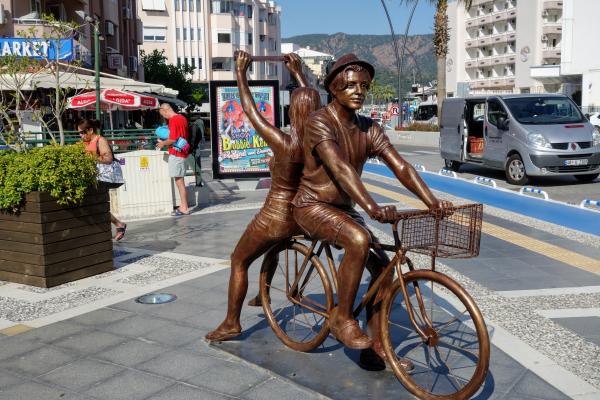|
The Coronavirus crisis as opportunity?
The Coronavirus crisis has changed practically everyone’s lives. The number of social contacts dropped to a minimum, working from home became the norm. Tourism suffered crushing blows. Virtually every company in that sector is on life-support and only survive by eating into reserves or drawing on support packages from the government.

Golden days for bicycles
And bicycles? They suddenly entered a golden age. Public transport had become a ‘suspect’ form of transport because of the danger of infection, and private vehicle use was reduced to a trickle, particularly in the first wave of infection. People were advised, above all, to stay in their own area. High time to get the bicycle out for a ride, or to buy one.
Busy bicycle paths and lanes
This surge had a marked effect on the bicycle trade. After a hesitant start in March and April 2020, sales began to grow vigorously. The cycle paths in towns and cities, as well as in popular parts of the countryside were getting fuller and fuller. So full that it even led to dangerous situations and fights.
For some European cities, advent of the Coronavirus crisis was reason enough for them to bring forward the implementation of their plans for bicycle traffic. Taking space away from automobiles for the benefit of cyclists, so that they could cycle to and from work safely or do their shopping. King Car had to take a step back. Crown Prince Bicycle, thanks to the Coronavirus crisis, just moved up to a higher gear.
End of the pandemic
In the meantime, the situation has already changed again. Refrigerated trucks with vaccine shipments are travelling throughout Europe; the end of the pandemic is coming into view. Will this also spell the end of the golden age of the bicycle? Will people return to driving polluting vehicles to their place of work in their masses? Or has the time finally gone when cyclists are treated as a sort of undesirable ‘freewheeling’ species in the roaring city traffic.
Opportunities for bicycle tourism
The bicycle paths being laid out more quickly in towns and cities provide many opportunities for tourism. Tourists can use them to explore the city on two wheels. And when these cycle paths are connected to attractive bicycle routes outside the cities, then cycling tourism will be given an extra boost.
Wim Bot of the ‘Nederlandse Fietsersbond’ -Dutch cycling union, will be clarifying cycling trends throughout Europe during Coronavirus in the online edition of the IBTC, on Wednesday 27th January, 9:30-10:00 am CET.
There will also be Round Table Sessions on ‘how we can deflect the Coronavirus crisis to our advantage’ and ‘how we can use the development of bicycle paths as a boost for cycling tourism’, also on Wednesday 27th, 14:00 pm CET.
For more information, please visit www.ibtconference.com.
With more than a dozen lectures by professionals from all over Europe and about three Round Table Sessions per day, this second edition of the IBTC will once again be presenting a comprehensive programme of contents for everyone engaged in Bicycle Tourism on a professional basis.

|
|
